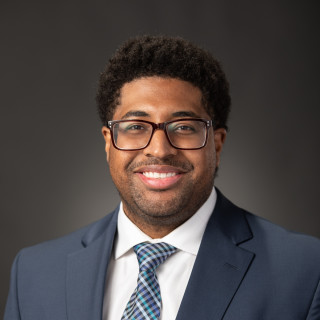When I was applying for residency, one of the common questions, if not the most common question I received was, “Why radiology?” A fill-in-the-blank question posed in some variation to every prospective resident, regardless of specialty. Of course, like most medical students, I rattled off a few sentences that I had practiced, making sure to throw in some generic but key words such as “passion,” “altruism,” “impact,” “helping others,” etc. This is the politically correct answer reserved for high-stakes interviews with key decision-makers, such as program directors, associate program directors, and senior residents. But the candid answer would probably include all of the above, plus some other factors and key words such as “money,” “lifestyle,” “debt,” and “sacrifice,” depending on the specialty.
In my experience, mentioning reasons that are not centered on patient care has been taboo. However, the circumstances suggest students are considering and perhaps even prioritizing these other factors. I do not believe it to be a coincidence that the most competitive specialties just happen to be the highest paying, have a reputation for the best work-life balance, or some combination of the two. By competitive, I am referring to specialties that on average have the highest board scores, number of publications, and relevant work experience amongst their applicants. There is a positive correlation between specialty competitiveness and factors such as pay and quality of life. No medical student will ever admit this during an interview, and nor should they, but I believe it does reflect a generational difference in how incoming doctors view medicine.
The idea that medicine is a calling or a passion, something that many of my attendings and educators preached to me during medical school, is in many ways refuted by the trend that the most competitive specialties also offer the highest compensation. Now this is not to paint future physicians as money hungry, but to affirm that this approach to choosing a specialty is OK. Indeed, it may be a very logical and practical approach, when taking into account excessive medical school debt, cost of living, and years of delayed income. In addition to aspiring to provide excellent patient care, there is nothing wrong with also aspiring to paying off your medical school debt as quickly as possible, spending time with your family, and saving up as much money as possible for retirement.
Certainly, people's priorities vary based on personal needs and preferences, and factors such as compensation, vacation, and other benefits are highly variable even within the same specialty. Still, the question remains: Does prioritizing compensation and other non-medical factors result in less caring or lower quality physicians? I have no way to prove this, but my intuition says “absolutely not.” These overarching considerations do not come into play in day-to-day patient care. The medical and intangible reasons for choosing a specialty still remain, and will continue to drive high-quality care.
Physicians can still provide exceptional care, even if a large part of their decision to pursue a specialty was based on compensation or time for extracurricular activities. Simply working as a physician, regardless of specialty, will provide you the opportunity to meet the aforementioned intangible desires of “passion,” “altruism,” “impact,” and “helping others.” Ultimately, the best and brightest students will have their choice of specialty, and leveraging their excellence in medical school into a career that provides them the resources to pursue both tangible and intangible ambitions may be the smartest and most logical decision.
How can physicians improve they way they discuss choosing a specialty? Share your thoughts in the comment section.
Dr. Abdillahi M. Omar is the Chief Resident at the Detroit Medical Center - Wayne State University Diagnostic Radiology residency program. He is also an MBA candidate at the University of Michigan Stephen M. Ross School of Business. He enjoys weightlifting, mixed martial arts, PC gaming, and is a blockchain technology and cryptocurrency enthusiast. Dr. Omar is a 2022–2023 Doximity Op-Med Fellow.
Image by Alphavector / Shutterstock







